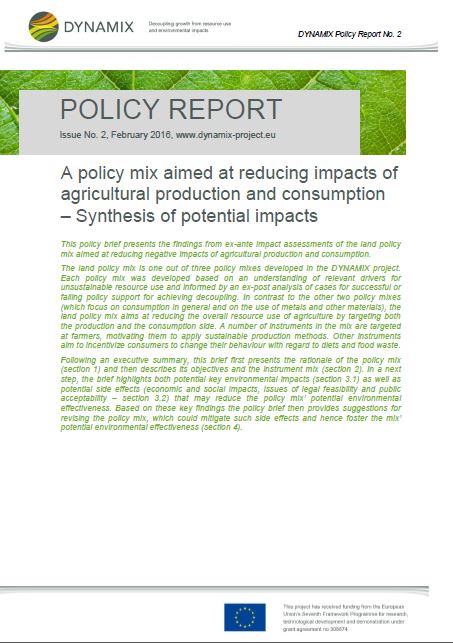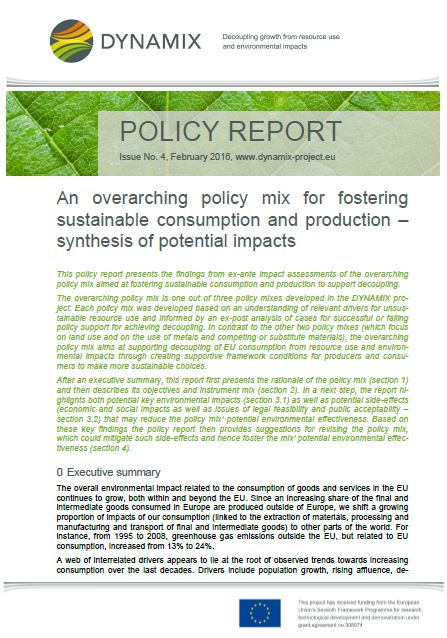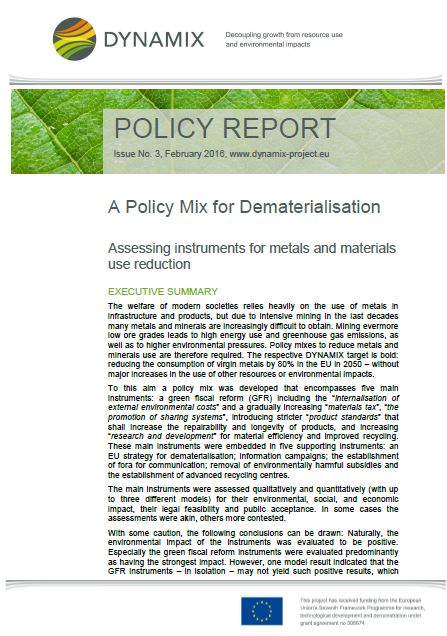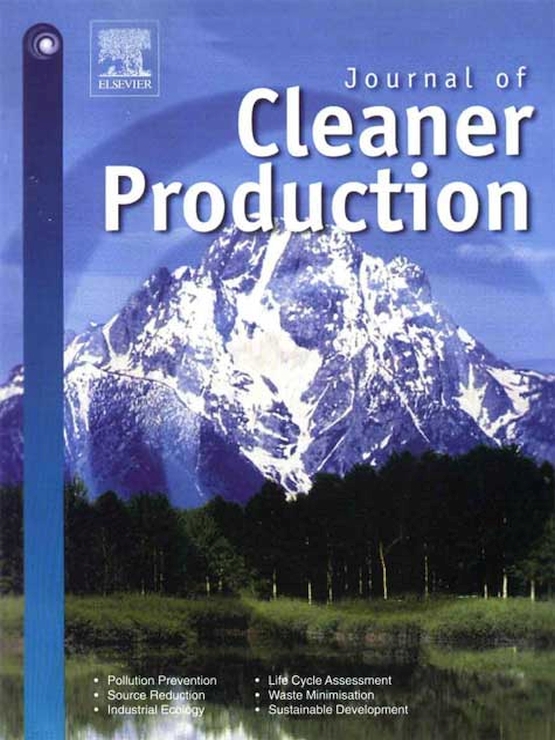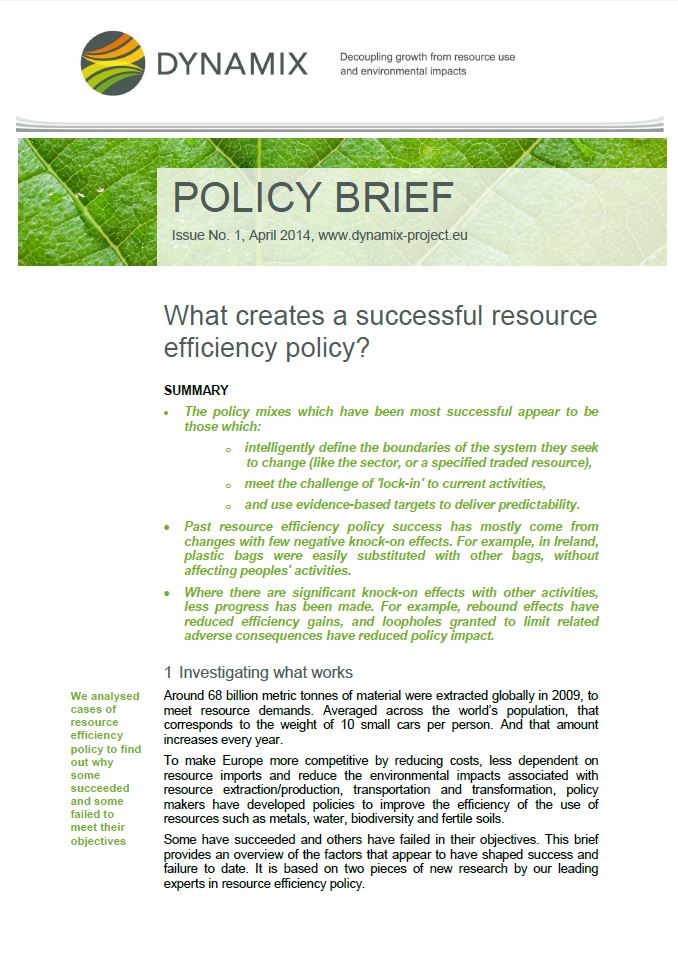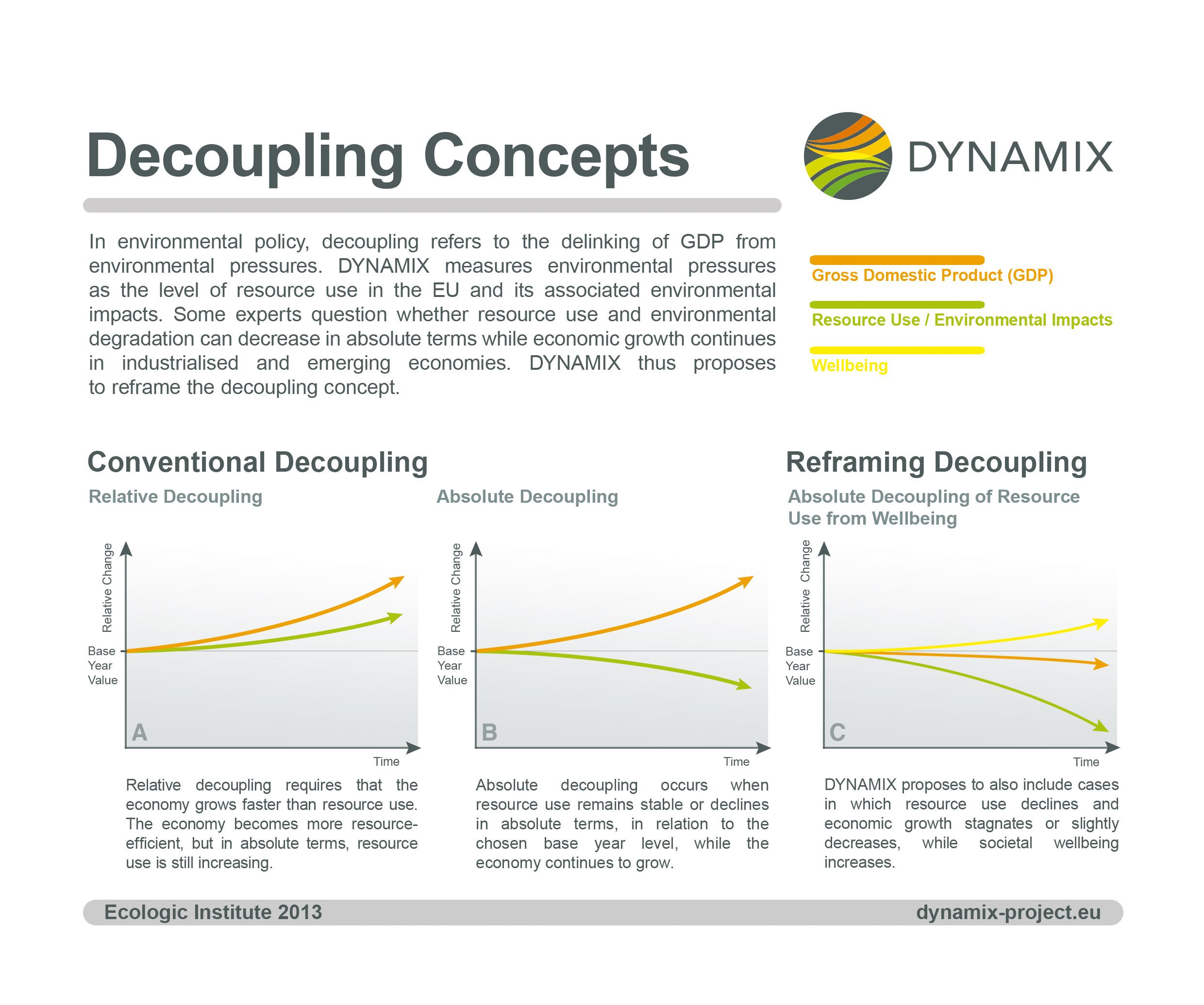The Underlying Reasons for Resource (In)Efficiencies
- Publication
- Citation
Tan, Adrian R., Polina Dekhtyar, Marion Sarteel et al. 2013: The Underlying Reasons for Resource (In)Efficiencies. BIO IS, Ecologic Institute, Berlin.
The report "The Underlying Reasons for Resource (In)Efficiencies" documents the work performed in the EU-funded FP7 project DYNAMIX. This report identifies the main inefficiencies of resource use in the EU and investigates their drivers and underlying causes. While progress has been made in increasing the economic benefits of resource use in the EU, there is still significant potential to increase resource efficiency and hence to decouple economic development from resource use and environmental degradation. The report and and accompanying executive summary are available for download.
The mentioned aims can be achieved by:
- Using fewer resources to fulfill the same needs
- Increasing the (socio-economic) value and benefits from the use of (the same amount of) resources
- Reducing the environmental impacts and damage associated with the use of resources
Based on an extensive review of existing literature and data, the main areas of inefficient resource use were identified and analysed using qualitative and quantitative methods. Resource use in the EU was examined from the perspective of individual types of resources such as materials, energy, water, land and ecosystems, but also from a production and consumption perspective, with a particular focus on food, transport and buildings. The drivers of inefficient resource use were examined qualitatively and quantitatively using meta-analysis of literature.
This report will serve as a basis for identifying key policy areas to focus on later in the DYNAMIX research project and support the European Commission in the development of policy mixes that will achieve absolute decoupling. The objective of the DYNAMIX project is to identify policy pathways to absolute decoupling of economic growth from resource use and its environmental impacts.
The report [pdf, 5.3 MB, English] as well as an executive summary [pdf, 760 KB, English] are available for download.
